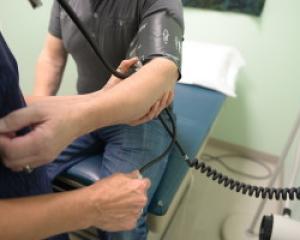-
Patient Information
-
-
Patient Information
-
-
- Services
Proudly Part of Privia Health
News & Announcements

What to Expect From Cataract Surgery
Dec 30
Cataracts cause blurred vision, sensitivity to light and other symptoms that make reading, walking and driving much more difficult. Fortunately, surgery offers a safe, effective way to improve your eyesight. If cataract surgery is on your calendar, here's what will happen before, during and after your procedure.

Fuchs Corneal Dystrophy
Dec 30
Fuchs corneal dystrophy affects the cornea, the clear window over the front of your eye. It causes swelling that leads to cloudiness, glare and increasing visual impairment. Women are slightly more likely than men to develop Fuchs. Onset usually happens after the age of 50; though early signs might start to become noticeable between the ages of 30 and 40. Fuchs usually affects both eyes.

LASIK, LASEK or SMILE: Which Type of Laser Surgery is Right for You?
Dec 30
Would you like to improve your vision without glasses or contacts but aren't sure which laser surgery option is the best choice? Learning a little about LASIK, LASEK and SMILE procedures can help you make your decision.

Age-Related Macular Degeneration
Dec 30
One of the leading causes of vision loss in people who are age 50 or older is age-related macular degeneration (AMD). This common eye condition leads to damage of a small spot near the center of the retina called the macula. The macula provides us with the ability to clearly see objects that are straight ahead.

Diabetic Eye Diseases
Dec 30
Diabetes is a condition that involves high blood sugar (glucose) levels. This can affect many parts of the body, including the eyes. One of the most common diabetic eye diseases is diabetic retinopathy, which is also a leading cause of blindness in American adults.

Presbyopia
Dec 30
Somewhere around the age of 40, most people’s eyes lose the ability to focus on close-up objects. This condition is called presbyopia. You may start holding reading material farther away, because it is blurry up close. Reading suddenly gives you eyestrain.

Laser Cataract Surgery
Dec 30
The only way to correct the clouded vision caused by advanced cataracts is surgical intervention. If you find yourself pursuing cataract surgery to remove one or both cataract-disease lenses, you may be wondering what surgical approaches are available for treatment.

Medicated Eye Drops
Dec 30
Treatment for glaucoma often begins with medicated eye drops. The goal of these medications is to lower the pressure in the eye (intraocular pressure) and prevent damage to the optic nerve.

Laser Surgery to Treat Presbyopia (Monovision)
Dec 30
Presbyopia is the gradual decline in close vision that occurs with age. The condition occurs as the lens in the eye stiffens and loses its flexibility, thereby impairing its ability to focus at images or objects up close.

LASIK
Dec 30
Laser-assisted in-situ keratomileusis, or LASIK, is the most common type of refractive surgery. If the curvature of your cornea deviates from the ideal curvature, light entering your eye will bend (refract) incorrectly.